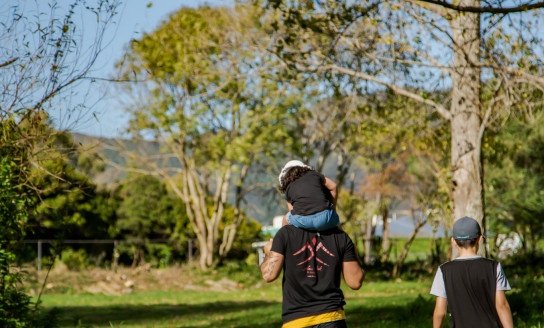Some children take longer than expected to develop physical, social, emotional or communication skills. A delay in more than one area is called a global developmental delay.
Kids with short-term delays may just need glasses or hearing aids, while others with longer-term delays might learn in different ways. Children with a developmental delay still learn but may need to be taught new skills in small simpler steps. This also gives your child more time to practise new skills.
It's good to identify any developmental issues as early as possible, so the right support can be put in place for your child.
Causes
Sometimes the cause of a developmental delay isn’t known, but there are many things that can affect a child’s development. These include:
- birth complications, low birth weight, premature birth, or lack of oxygen for example
- brain injury
- environmental conditions, like:
- lack of loving, interactive relationships with parents or caregivers
- trauma
- family violence
- parental abuse of drugs or alcohol before or after birth.
- genetic conditions, like Down syndrome.
- Short-term delays can be caused by physical illness, chronic ear infections, vision problems, injuries, long periods in hospital, or family stress.
Possible signs of a developmental delay
If your baby has more than one of the following signs in any category, or you're worried about your child’s development, have a chat with your Plunket nurse or GP.
Physical signs of possible developmental delay
If your baby:
- doesn’t use or doesn’t move their legs and/or arms
- seems to have trouble seeing or hearing things
- can’t hold their head up by the time they’re three to four months old
- isn’t sitting well by 10 months
- doesn’t want to stand up, even supported, by 12 months.
Behavioural signs of possible developmental delay
Your baby:
- has an unusual cry, like a high-pitched squeal, for example
- cries for more than three hours a day, especially after three to four months.
Social, emotional and communication signs of possible developmental delay
Your baby:
- doesn’t seem interested in what’s happening around them
- doesn’t look at you
- doesn’t consistently respond to sounds
- isn’t babbling by nine months or is using fewer than five words at 18 months.
What to do
You know your child best. If you’re concerned about their development, talk to your GP or Plunket nurse, who can make a referral if necessary.
Health professionals usually only use the term developmental delay until they can figure out what’s causing the delay – after that they’ll use a name that better explains the condition.
Developmental delay can be short-term, or it can be an early sign of other conditions, like:
- a language delay
- learning disabilities like dyslexia and dyspraxia
- a hearing impairment
- a visual impairment
- Autism Spectrum Disorder (ASD)
- Attention Deficit Hyperactivity Disorder (ADHD) or Attention Deficit Disorder (ADD)
- Down syndrome
- intellectual disability
- cerebral palsy
- fetal alcohol syndrome
- brain injury/trauma.
If your child has a developmental delay, a long-term condition or additional needs, they may need extra support at daycare or preschool. Talk to your childcare provider about your child.
The Ministry of Education has an early intervention service to help children with additional needs, and there are many other early intervention providers. If your child is diagnosed with a disability, you may be able to get extra financial support.
Financial help when your child has a disability
What to do if you are worried about your child's learning
